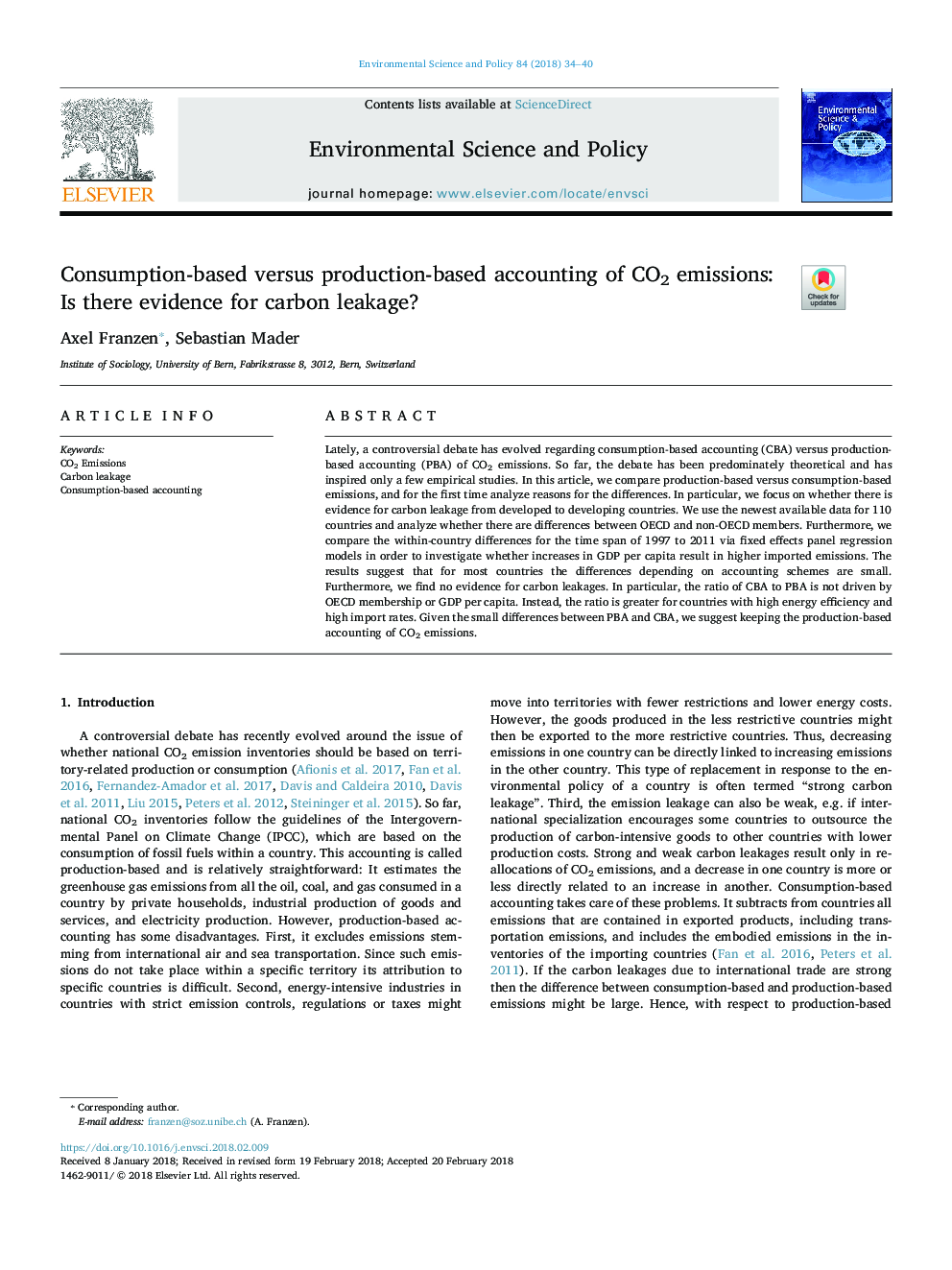| Article ID | Journal | Published Year | Pages | File Type |
|---|---|---|---|---|
| 7466018 | Environmental Science & Policy | 2018 | 7 Pages |
Abstract
Lately, a controversial debate has evolved regarding consumption-based accounting (CBA) versus production-based accounting (PBA) of CO2 emissions. So far, the debate has been predominately theoretical and has inspired only a few empirical studies. In this article, we compare production-based versus consumption-based emissions, and for the first time analyze reasons for the differences. In particular, we focus on whether there is evidence for carbon leakage from developed to developing countries. We use the newest available data for 110 countries and analyze whether there are differences between OECD and non-OECD members. Furthermore, we compare the within-country differences for the time span of 1997 to 2011 via fixed effects panel regression models in order to investigate whether increases in GDP per capita result in higher imported emissions. The results suggest that for most countries the differences depending on accounting schemes are small. Furthermore, we find no evidence for carbon leakages. In particular, the ratio of CBA to PBA is not driven by OECD membership or GDP per capita. Instead, the ratio is greater for countries with high energy efficiency and high import rates. Given the small differences between PBA and CBA, we suggest keeping the production-based accounting of CO2 emissions.
Related Topics
Physical Sciences and Engineering
Energy
Renewable Energy, Sustainability and the Environment
Authors
Axel Franzen, Sebastian Mader,
